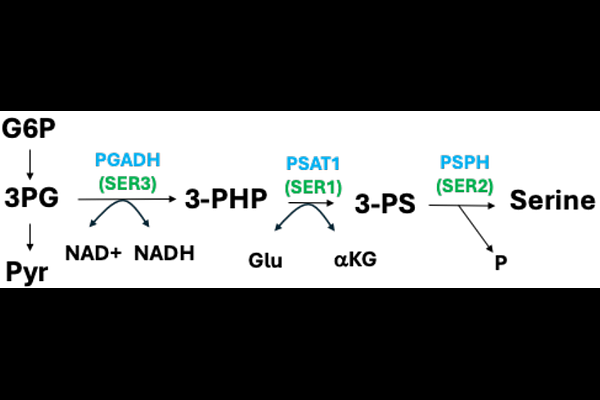Engineering serine metabolism to enhance AOX1 promoter self-induction in a formate dehydrogenase-deficient Komagataella phaffii

Engineering serine metabolism to enhance AOX1 promoter self-induction in a formate dehydrogenase-deficient Komagataella phaffii
Cozmar, R.; Berrios, J.; Fickers, P.
AbstractThe methylotrophic yeast Komagataella phaffii is a premier host for recombinant protein (rProt) production, traditionally relying on methanol induction of the alcohol oxidase 1 promoter (pAOX1). However, methanol flammability and associated industrial limitations have motivated the search for methanol-free induction systems. We recently demonstrated that disruption of formate dehydrogenase (FDH) in K. phaffii allows endogenous formate, derived from tetrahydrofolate (THF)-mediated C1 metabolism, to induce pAOX1 without addition of external inducers. Building on this, we hypothesized that increasing intracellular formate production by enhancing serine biosynthesis could further improve promoter induction and rProt productivity. Overexpression of SER3, encoding 3-phosphoglycerate dehydrogenase, the rate-limiting enzyme in serine synthesis, significantly increased pAOX1-driven expression of an intracellular reporter protein (eGFP) and secreted glucose oxidase (Gox) from Aspergillus niger, without compromising cell fitness. Enhanced formate accumulation and stronger pAOX1 induction were observed in both micro- and bioreactor cultivations using sorbitol or glycerol-sorbitol mixtures. In bioprocess conditions, SER3 overexpression led to a 30% increase in specific Gox activity compared to the parental FdhKO strain. This study provides a cost-effective metabolic engineering strategy for methanol-free, self-inducible expression systems in K. phaffii based on pAOX1, enabling safer and more sustainable industrial rProt production.